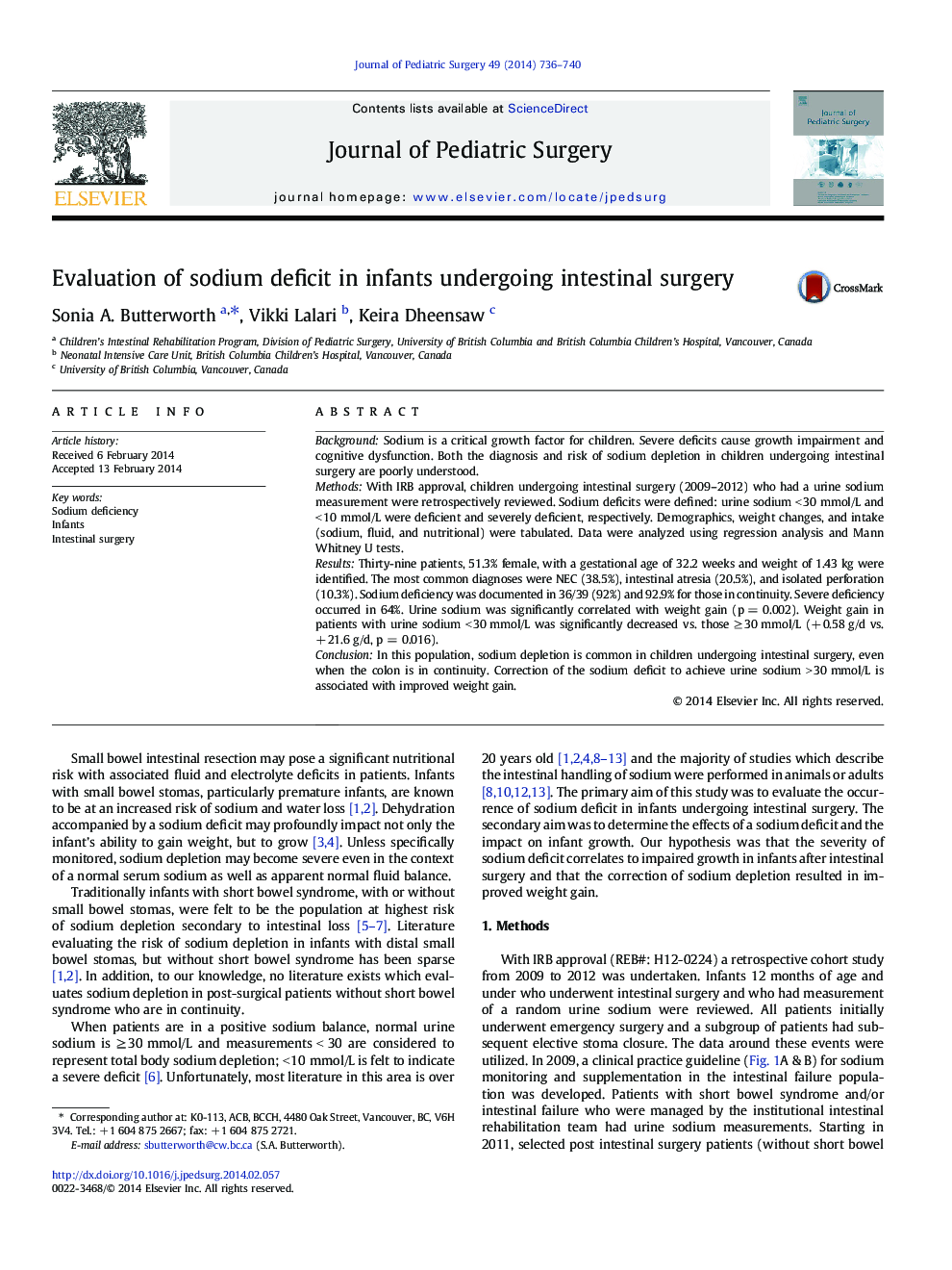| کد مقاله | کد نشریه | سال انتشار | مقاله انگلیسی | نسخه تمام متن |
|---|---|---|---|---|
| 4155729 | 1273754 | 2014 | 5 صفحه PDF | دانلود رایگان |
BackgroundSodium is a critical growth factor for children. Severe deficits cause growth impairment and cognitive dysfunction. Both the diagnosis and risk of sodium depletion in children undergoing intestinal surgery are poorly understood.MethodsWith IRB approval, children undergoing intestinal surgery (2009–2012) who had a urine sodium measurement were retrospectively reviewed. Sodium deficits were defined: urine sodium < 30 mmol/L and < 10 mmol/L were deficient and severely deficient, respectively. Demographics, weight changes, and intake (sodium, fluid, and nutritional) were tabulated. Data were analyzed using regression analysis and Mann Whitney U tests.ResultsThirty-nine patients, 51.3% female, with a gestational age of 32.2 weeks and weight of 1.43 kg were identified. The most common diagnoses were NEC (38.5%), intestinal atresia (20.5%), and isolated perforation (10.3%). Sodium deficiency was documented in 36/39 (92%) and 92.9% for those in continuity. Severe deficiency occurred in 64%. Urine sodium was significantly correlated with weight gain (p = 0.002). Weight gain in patients with urine sodium < 30 mmol/L was significantly decreased vs. those ≥ 30 mmol/L (+ 0.58 g/d vs. + 21.6 g/d, p = 0.016).ConclusionIn this population, sodium depletion is common in children undergoing intestinal surgery, even when the colon is in continuity. Correction of the sodium deficit to achieve urine sodium > 30 mmol/L is associated with improved weight gain.
Journal: Journal of Pediatric Surgery - Volume 49, Issue 5, May 2014, Pages 736–740
